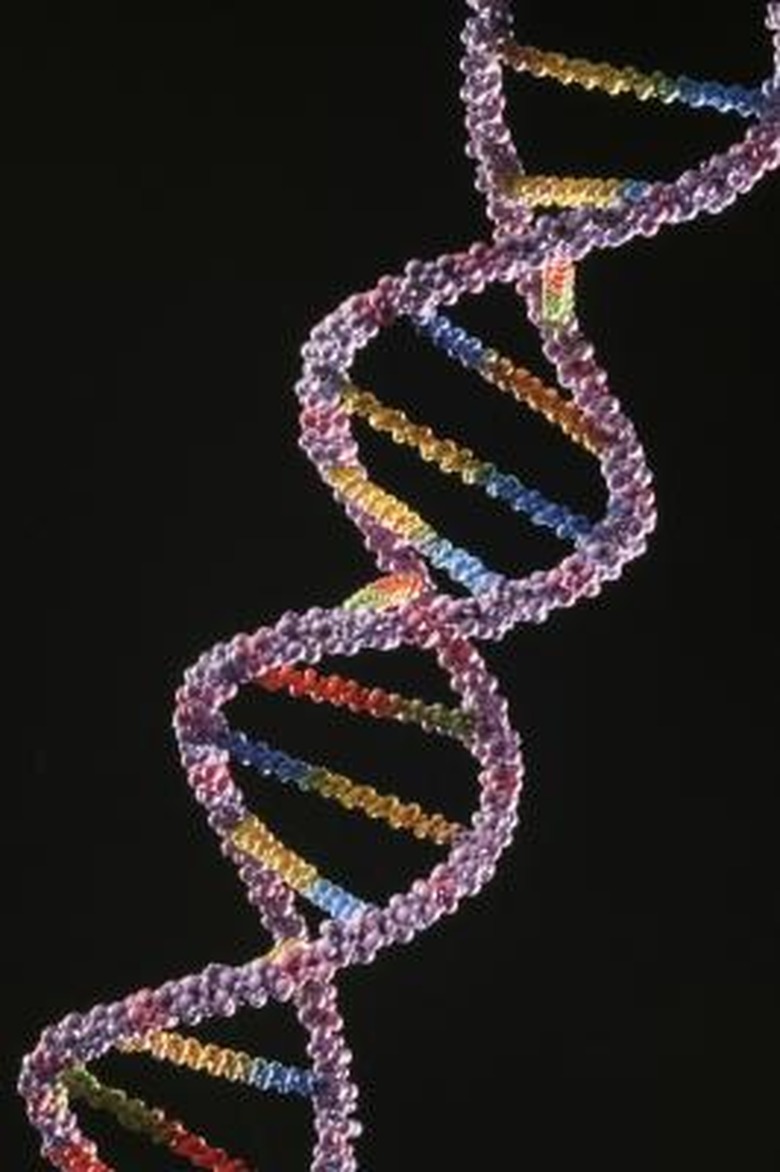Difference Between Mutation & Genetic Drift
Mutation and genetic drift are two very different events, though they both relate to the genetic qualities of future generations. Mutation and genetic drift can both occur in any species, regardless of size or location. The causes of genetic drift and mutation are varied, though some causes of mutation can be avoided.
Mutation
Mutation
A mutation is defined as a permanent change to the DNA sequence in a gene. This change shifts the genetic message carried by the gene and can alter the amino acid sequence of the protein the gene encodes. This means that future cells produced by the gene will only carry a certain trait.
Causes of Mutation
Causes of Mutation
DNA mutation occurs under several conditions. A radioactive material can give off high energy radiation or X-rays, both of which are absorbed by water molecules surrounding the DNA. This water molecule then transforms into a reactive free radical, which attacks the DNA molecule. Sunlight can also mutate DNA. UV radiation causes unnatural links to form within the DNA, which are then carried to new cells. In spontaneous mutation, some DNA nucleotides will spontaneously shift to a new chemical form, which results in the nucleotide producing different hydrogen bonds.
Genetic Drift
Genetic Drift
Genetic drift, on the other hand, is the change in the genetic composition of a population over time as a result of chance or random events. In cases of genetic drift, such as natural disasters or seasons of unusual weather, the generation that survives to reproduce will not necessarily be the most fit, but the most lucky. Genetic drift does not refer to a specific change in genetic cells, rather to random occurrences that influence a population's genetic makeup.
Effects of Genetic Drift
Effects of Genetic Drift
Populations of all sizes experience genetic drift, though small populations are usually more affected by it. Genetic drift tends to reduce the genetic variation in a population, which can undermine a species' ability to survive. Natural selection requires variation within a population to ensure its survival under different conditions, but natural selection cannot create new genetic variance in a species.
Cite This Article
MLA
Prince, Alicia. "Difference Between Mutation & Genetic Drift" sciencing.com, https://www.sciencing.com/difference-between-mutation-genetic-drift-8517092/. 24 April 2017.
APA
Prince, Alicia. (2017, April 24). Difference Between Mutation & Genetic Drift. sciencing.com. Retrieved from https://www.sciencing.com/difference-between-mutation-genetic-drift-8517092/
Chicago
Prince, Alicia. Difference Between Mutation & Genetic Drift last modified August 30, 2022. https://www.sciencing.com/difference-between-mutation-genetic-drift-8517092/
